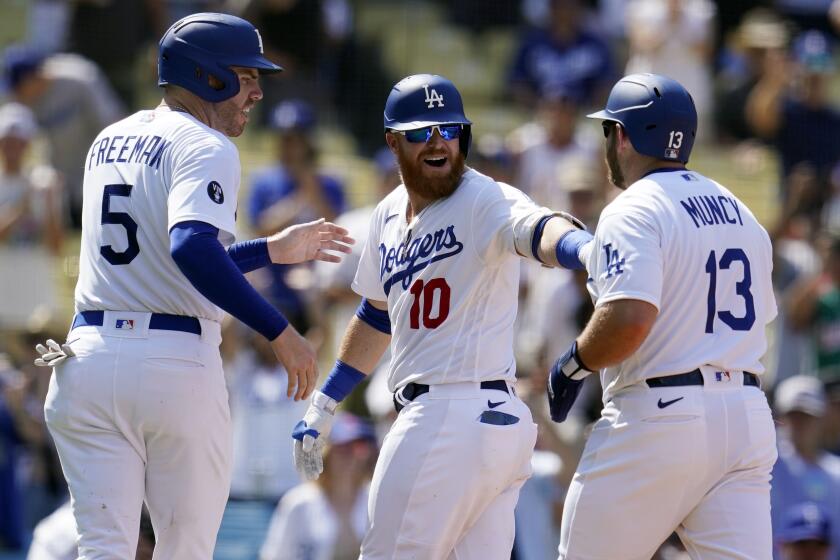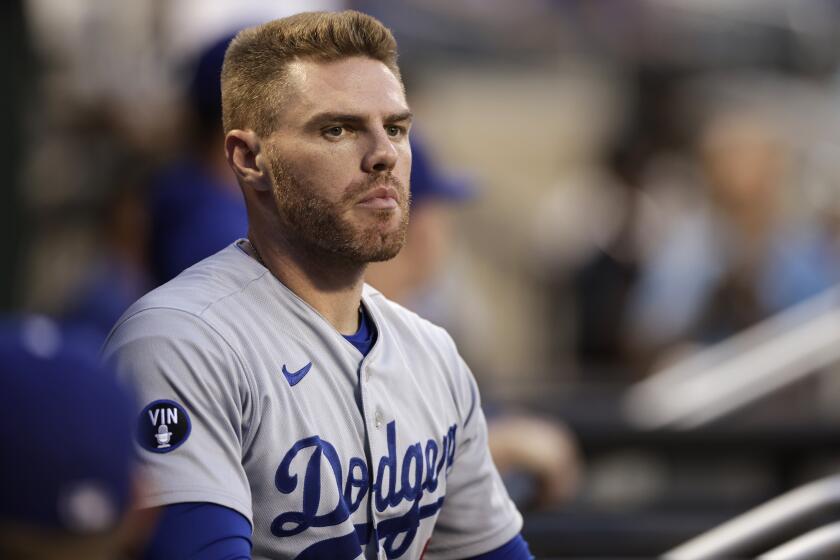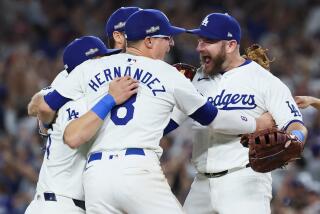Column: If Dodgers’ postseason pitching goes wrong, Dave Roberts will be blamed
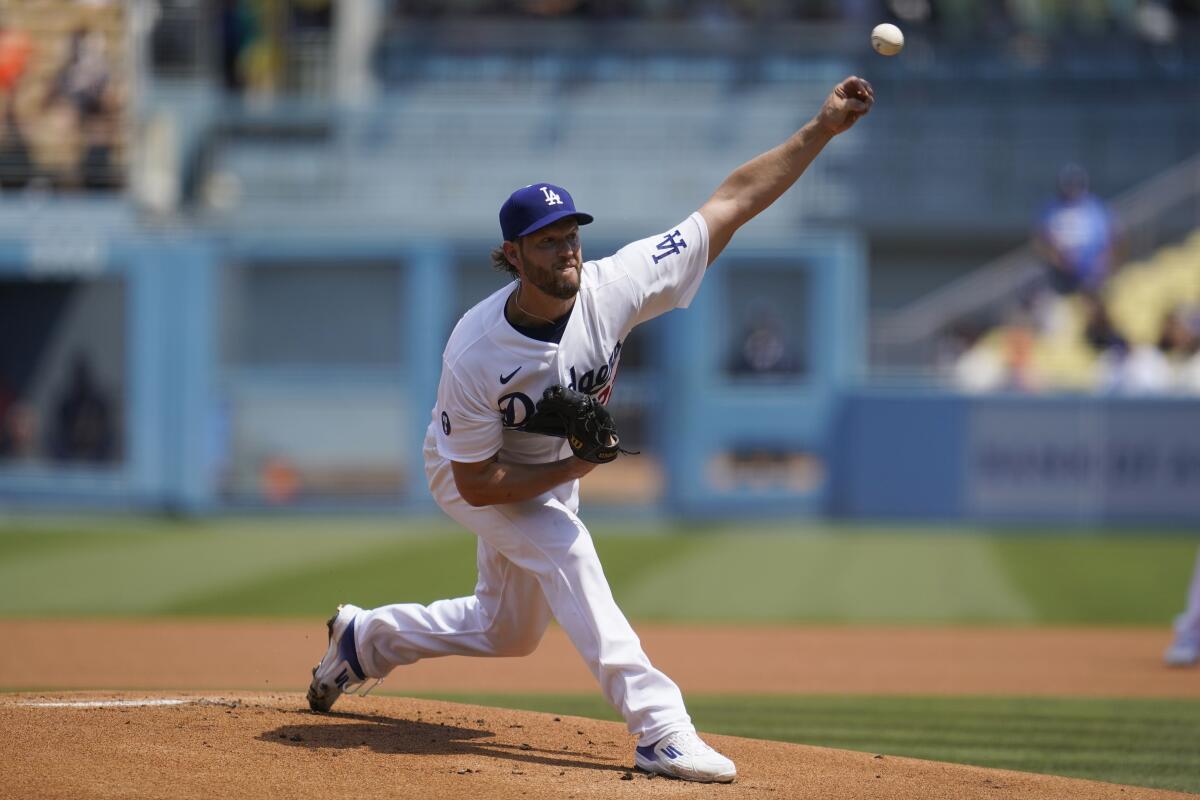
- Share via
This feels like a setup.
The Dodgers have a number of decisions to make about their pitching, but none of them are obvious choices, save for starting Julio Urías in their postseason opener.
Dave Roberts knows what this means.
Each possibility represents an opportunity to be second-guessed as it does a potential avenue to victory.
Whether a decision was made by Roberts or the front office will be immaterial. As far as the average fan is concerned, if the Dodgers fail to win the World Series, Roberts will be at fault.
“It certainly bothered me more early in my tenure than it does now,” Roberts said.
With a 7-3 victory over the San Francisco Giants on Wednesday, the Dodgers reduced their magic number to six. They should secure their ninth division title in 10 years on their upcoming nine-game trip, which includes stops in San Diego, Arizona and San Francisco.
Their 94-42 record is the best in baseball, which makes them almost certain to earn a bye in the wild-card round. The playoffs should start for them at Dodger Stadium on Oct. 11, the day of Game 1 of the National League Division Series.
Less clear is how they will line up their pitchers once they’re there.
“It’s not as clear as in past years,” Roberts conceded.
Justin Turner and Max Muncy both hit homers to lead the Dodgers past the San Francisco Giants 7-3 on Wednesday at Dodger Stadium.
Last year, the choices were straightforward, the Dodgers deploying Walker Buehler, Julio Urías and Max Scherzer as their starters.
Buehler is now recovering from a major elbow operation. Scherzer is pitching for the New York Mets.
The only remaining pitcher of that triumvirate is Urías, who has emerged as a staff ace and the team’s projected Game 1 starter.
In the series finale against the Giants, Kershaw showed encouraging signs he could be counted on in October, giving up two runs over six innings in his second start after returning from the injured list. Kershaw, who missed the entire postseason last year because of arm trouble, should be in the playoff rotation if healthy.
The real questions start after him.
Will Tony Gonsolin return from a forearm strain? If he does, will he return in time to build the necessary arm strength to shoulder a starter’s workload?
Who should be ahead in the pecking order: Dustin May, who has a high ceiling but a low floor, or Tyler Anderson, who is more consistent but less spectacular?
What should the Dodgers do with Andrew Heaney? Is there a place on the team for Ryan Pepiot?
Considering the Dodgers have no idea what they’ll get from anyone beyond Urias and Kershaw, would they be smart to move a couple of their starters to the bullpen to take down innings in case a starter can’t make it out of the early innings?
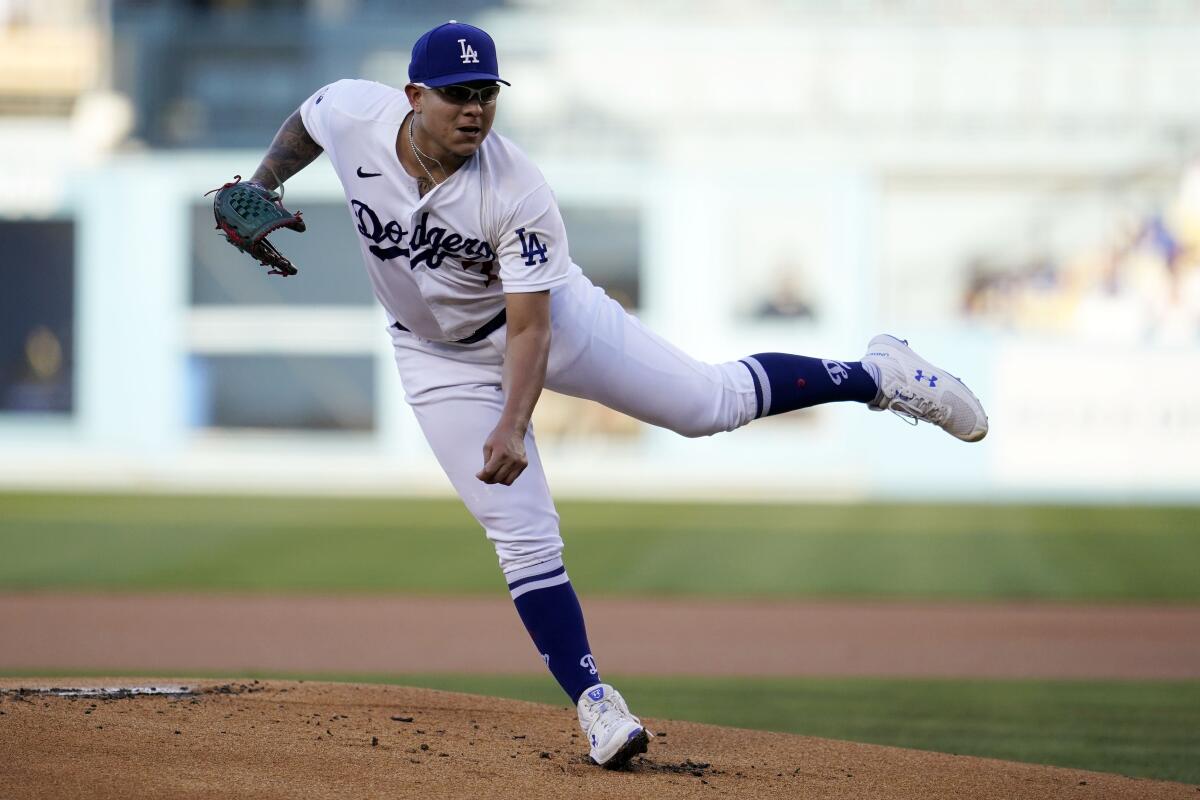
One wrong decision can sink the team.
The bullpen will figure into this complex puzzle, decisions affected by whether closer Craig Kimbrel can sustain his current form to how the likes of Blake Treinen, Brusdar Graterol and Tommy Kahnle work their way back from their respective injuries.
“You’re looking at, right now, 28 guys on our roster,” Roberts said. “We’ve got a couple guys coming back. So you’re trying to figure out how to essentially put 32 guys in 26 spots on the roster.”
Roberts called these Dodgers the greatest collection of offensive talent he has managed in his seven seasons with the organization. He knows that if a certain pitcher costs them a game, there will be questions about why another pitcher wasn’t placed on the roster instead.
And if that happens, Roberts knows he will come under fire. Never mind that the front office will be heavily involved in, if not outright drive, roster decisions and pitching plans.
Sports agent Casey Close had sued radio personality Doug Gottlieb, alleging defamation by libel, over a report concerning Freddie Freeman’s contract negotiations.
That was Roberts’ fate last October, when the front office came up with an unconventional pitching plan in the NL Division Series. The lasting effects cost them in the next round.
Roberts has accepted this as part of his job. He has also accepted how there are more decisions to be made this year, and, as a result, more choices that could backfire.
“I know that no one wants to win more than me and the people that I work with,” he said. “So, that’s kind of solace, and it’s easier to kind of manage the blame or criticism that I get every day.”
Of course, there’s a way he can be spared of the scrutiny: Make the right choices and win.
More to Read
Are you a true-blue fan?
Get our Dodgers Dugout newsletter for insights, news and much more.
You may occasionally receive promotional content from the Los Angeles Times.

